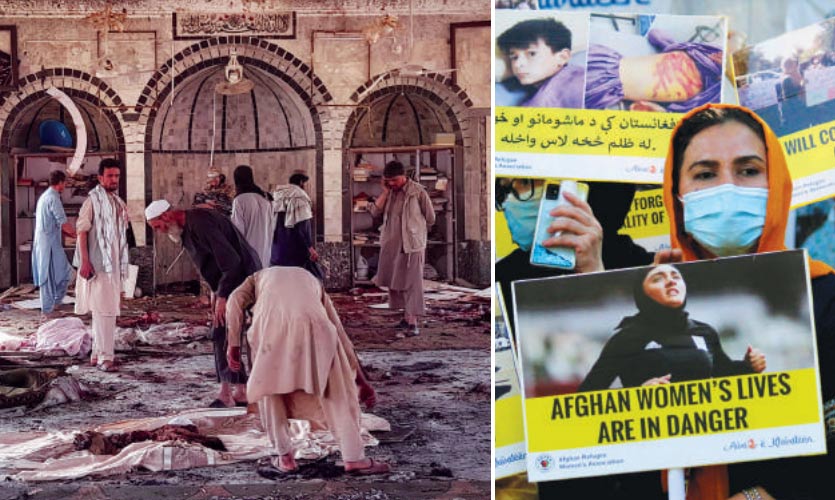The US Commission on International Religious Freedom (USCIRF), a supposedly bipartisan, independent body, released its annual report, on Monday, in which it recommended that India be designated as a “Country of Particular Concern” (CPC), for the third year in a row. It has further urged the US State Department to take this step, claiming that the state of religious freedom has “significantly worsened” in India, in 2021. While USCIRF’s recommendations are non-binding on the US State Department, if India is added to the CPC list, the US government would have the power to impose sanctions on India.
India is among 15 other countries that were flagged over religious freedom concerns. The list includes Afghanistan, Burma, China, Eritrea, Iran, Nigeria, North Korea, Pakistan, Russia, Saudi Arabia, Syria, Tajikistan, Turkmenistan and Vietnam. A similar recommendation was made last year, however, US President Joe Biden’s administration did not accept it. The USCIRF panel first recommended India’s inclusion in the CPC list in 2020. Subsequently, rejecting their observations and calling them “biased”, the Ministry of External Affairs had declared, “We regard it as an organisation of particular concern and will treat it accordingly.” India has been denying visas to members of the USCIRF for more than a decade.
The recent report states that in 2021, the present BJP-led government has increasingly been enforcing policies promoting the Hindu-nationalist agenda, which negatively affects the Dalit community, Christians, Muslims, Sikhs, and other religious minorities. “The government continued to systemize its ideological vision of a Hindu state at both the national and state levels through the use of both existing and new laws and structural changes hostile to the country’s religious minorities,” added the report.
The report also cited incidents of violence, unprovoked or allegedly incited by government officials, adding, “Both officials and non-state actors have used social media platforms and other forms of communication to intimidate and spread hatred and disinformation against religious minority communities.” The report also called out India for the country’s anti-conversion laws, saying that Muslims and Christians are being subjected to mob violence based on accusations of conversions.
On the other hand, some reports have alleged that the USCIRF is working against India. Reportedly, the panel’s chair, Nadine Maenza, soon after her appointment in 2018, started working with Shaik Ubaid and his organisation – the Indian American Muslim Council (IAMC). These accusations of lobbying against India date back to the years 2013 and 2014. Incidentally, Maenza is also the president of an organisation called Patriot Voices, and her colleague Terry Allen is also the founder and president of a lobbying firm called the Fidelis Government Relations (FGR). The FGR was purportedly hired by the IAMC to lobby the USCIRF to blacklist India. Between 2013 and 2014, the IAMC paid Allen’s firm approximately $40,000. Additionally, Shaik Ubaid, founder of the Burma Task Force (BTF), had also hired FGR between 2018 and 2020, spending an estimated $267K. Maenza has regularly associated with the IAMC and the BTF, and has called for adding India to the CPC list several times.
Read more: Modi’s Visit To Kashmir A “Ploy To Fake Normalcy”: Pakistan
Another report by DisInfo Lab, an independent and open-source intelligence based organisation, has confirmed the anti-India lobbying by IAMC. In December 2021, the IAMC was also booked under India’s Unlawful Activities (Prevention) Act (UAPA), 2019, for allegedly spreading fake news and instigating communal disharmony during the Tripura violence. BTF’s Ubaid is also associated with the USA-Islamic Circle of North America, which allegedly has ties to designated terrorist groups such as the Jamaat-e-Islami (JeL), Lashkar-e-Taiba (LeT), and the Hizb-ul-Mujahideen.
Apart from several other allegations on the USCIRF, some reports have also reflected strong anti-India sentiment as in 2014, a report by the organisation depicted India’s map without showing its claimed areas of Jammu and Kashmir, Ladakh and Arunachal Pradesh as parts of the country.










